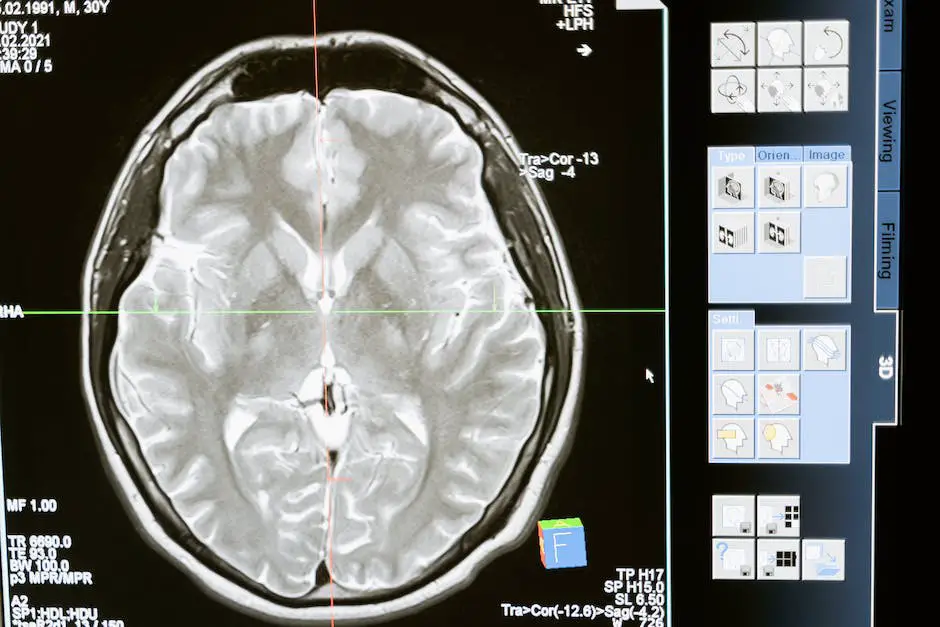While trying to find alternative ways on how to deal with sickness, I came across functional medicine. It is a new approach to regain health in a wholistic way. Read on to know more about this interesting, less invasive approach to treat ailments.
Immersing ourselves in the realms of health and wellness, we frequently encounter traditional medicine methods and their respective benefits and pitfalls. However, a relatively fresh and integrated approach to health has begun to make waves in the medical community – functional medicine.
This innovative discipline branches off from the established norms, prioritizing the named entity as a whole, rather than focusing merely on the symptoms. Of interest is how functional medicine delves into the root causes of diseases and emphasizes the intertwining interactions between physical, genetic, environmental, and lifestyle elements. It’s a fascinating field that has the potential to significantly transform how we approach healthcare.
Table of Contents
What is functional medicine?
Functional Medicine: A Divergence from Conventional Medical Approaches
Functional medicine represents a revolutionary paradigm shift in the realm of medical sciences, veering away from the traditional disease-dominant approach and instead employing a comprehensive, holistic lens through which health is viewed and managed.
Firstly, it is essential to comprehend what functional medicine is and what it truly embodies. Rooted in systems biology, it addresses the intricate interactions within the biological systems of the human body. It seeks to understand the patient’s history and lifestyle to identify the core cause of diseases and disorders. The aim is not merely the treatment of symptoms, but the overarching pursuit of optimal, enduring health through the recognition and rectification of the fundamental underlying aspects that cause imbalance.
Functional medicine seeks to understand the patient’s history and lifestyle to identify the core cause of diseases and disorders. The aim is not merely the treatment of symptoms, but the overarching pursuit of optimal, enduring health through the recognition and rectification of the fundamental underlying aspects that cause imbalance.
Unraveling the divergence between functional medicine and conventional medical approaches unravels distinct perspectives on healthcare each represents.
Traditional medicine operates on a linear model, combating symptoms directly. Treatments often involve drugs that counteract or suppress symptoms without probing deeply into the causes of the disease. This reactive strategy tends to be more efficient in treating acute illnesses and emergencies where immediate interventions are necessary.
Conversely, functional medicine adopts a systems biology-based approach, emphasizing personalized treatment and preventative care. It incorporates the biochemical individuality of each patient, genetic traits, environmental factors, and lifestyle influences into the diagnosis and treatment plan. By examining these numerous factors, functional medicine unearths the root causes of disease, facilitating personalized strategies targeting prevention and recovery.
Genomics and the burgeoning field of personalized medicine are tightly interwoven into the fabric of functional medicine. By considering the genetic makeup of a patient, functional medicine professionals can recommend tailored plans that optimize therapeutic effectiveness and reduce adverse effects, resulting in personalized healthcare that respects the biological uniqueness of each individual.
Moreover, functional medicine underscores the significance of the patient-practitioner relationship. It fosters an empathetic and dynamic connection that transforms healing into a collaborative act between practitioner and patient. This shift in the patient-doctor dynamic ensures that the patient feels heard and acknowledged, potentially increasing the effectiveness of therapeutic interventions.
Finally, functional medicine emphasizes the significance of nutrition, exercise, and other lifestyle factors on health. It stresses the prevention and management of chronic diseases through lifestyle changes, presenting a contrast to conventional medicine’s heavy reliance on pharmacological treatments.
In summary, functional medicine is an integrative, science-based healthcare approach that treats illness and promotes wellness by addressing the biochemically unique aspects of each patient, and then customizing interventions to restore physiological, psychological, and structural balance. Its divergence from the conventional medical approach is marked by its proactive approach to understanding disease etiology and its strong emphasis on personalized, preventive care. By doing so, functional medicine fosters a modern, patient-centered approach that strives to optimize health, rather than merely eradicate disease.
5 principles and approaches in functional medicine
The Cornerstones of Functional Medicine: Guiding Rules and Techniques
Venturing further, the key to accurately understanding functional medicine lies in recognizing its core tenets, serving as the anchor points within its framework. Here are several guiding principles and methodologies that give functional medicine its distinct identity.
1. Biochemical Individuality
At the forefront of functional medicine guidelines is the notion of Biochemical Individuality, or the appreciation of genetic and biochemical uniqueness in each patient. This element redefines the concept of standard care in functional medicine, emphasizing the one-size-does-not-fit-all philosophy.
Herein, treatment regimens align with individualized genetic and biochemical profiles, allowing for a more personalized and effective treatment. The doctor communicates with the patient at a deeper level. It’s unlike conventional medicine where the doctor just prescribes drugs or symptom-directed intervention that works only on the short term.
2. Identifying the Imbalances and Dysfunctions
Unearthing imbalances and dysfunctions in the body serves as another bedrock of functional medicine. Drawing from principles of biochemistry and physiology, healthcare practitioners strive to identify core imbalances and rectify them to restore health.
Unlike traditional medicine that often addresses symptoms or diseases, functional medicine drills down to the root cause, aiming for a more sustainable resolution of health issues. Thus, the approach entails probing into the individual’s lifestyle which may reveal the primary cause of the current illness.
3. Systems-Oriented
Utilizing a systems-oriented, or an integrative approach also underlines this medical field. This approach urges the practitioner to see the body as an interconnected web, where changes in one component could influence others, much like dominoes in sequence.
Functional medicine providers, therefore, aim to map these relationships, whether it be between human physiology and genetics or environment-human health interactions. Key areas of intervention will present itself that will enable effective treatment.
4. Health as Positive Vitality
Likewise, promoting health as a positive vitality rather than merely an absence of disease is another principle that functional medicine rests on. Preference is given to enhancing vitality and health-span, simultaneously employing preventative strategies rather than simply managing diseases.
5. Team-Based Approach
Functional medicine also emphasizes the patient-practitioner partnership. A team-based approach is fostered and clinician hierarchies are blurred, with the patient recognized as an active participant in their health journey.
Therefore, orchestrating a therapeutic alliance – where clinicians and patients develop sustainable, lifelong strategies together – forms an integral part of functional medicine’s operational fidelity. Both parties cooperate with each other to come up with more effective remedies to illnesses.
Methodology of Functional Medicine
Deeper into the mechanics of functional medicine, we find a unique methodology unlike traditional diagnostic procedures – the Functional Medicine Matrix. Born out of functional medicine’s core tenets, this model offers an efficient approach to organize and analyze medical information. It serves as a clinical tool to assist health practitioners in detecting core imbalances, subsequently directing their approach to restoring optimal functionality in the human system.
This evidence-based framework guides practitioners to formulate an approach based not just on individual symptoms, but also considering the complex web of interactions in the patient’s history, physiology, and lifestyle that might have led to illness. The Functional Medicine Matrix, with its meticulous eye for detail, offers an invaluable guide for addressing chronic disease in a way that empowers patients and supports their journey towards optimal health.
Functional medicine stands out for its intriguing blend of scientific tradition and avant-garde thinking, an amalgamation that potentially changes the trajectory of healthcare. It forthwith highlights an enriched understanding of the intricacies of human health, inspiring a fervor that resonates across patients and practitioners, steering a revolutionary path in the realm of medicine.
In essence, through biochemical individuality, the uncovering of body imbalances, a systems-oriented approach, promoting positive vitality, the strengthening of patient-practitioner partnership, and the deployment of the Functional Medicine Matrix methodology, functional medicine proves to be a formidable ally in the management of chronic diseases. Enabling a shift from a disease-centered to a health-centered approach, it is undeniably a beacon of hope in the face of chronic health challenges.

The application of functional medicine in chronic disease management
Contribution of Functional Medicine in the Management of Chronic Diseases
Functional medicine also contributes to the management of chronic diseases through its relentless pursuit of identifying imbalances and dysfunctions in the body. By focusing on identifying the root cause of the disease, functional medicine practitioners can uncover complex and hidden layers of imbalances, providing a pathway to a more comprehensive and sustainable treatment plan.
A key facet in functional medicine, and perhaps its strongest asset in chronic disease management, is in its nurturing of the patient-practitioner partnership. The vision of functional medicine is to empower patients to take an active role in their health.
The practitioner serves as a guide and teacher, equipping patients with the information and resources they need to further their well-being. This relationship can lighten the burden of chronic disease management by enforcing adherence to treatment, fostering positive lifestyle changes, and encouraging a sense of shared responsibility.

The benefits and pitfalls of functional medicine
Upon extensive consideration of functional medicine, one unveils the array of benefits that this comprehensive, patient-centered approach bequeaths. It is critical, nevertheless, to not lose sight of potential limitations or potential drawbacks that might accompany this burgeoning facet of healthcare delivery.
To begin with, the magnitude of the strength of functional medicine lies in its ability to precisely take into account genetic makeup, biochemistry, and lifestyle choices that influence health and disease. This results in a multidimensional understanding of the etiology of diseases, unraveling an individualized therapeutic regimen that directly targets the root causes rather than merely treating symptoms.
Functional medicine’s dedication to understanding the complexity of disease manifestation and progression allows for greater diagnostic precision. The use of advanced diagnostic testing is particularly impactful in deciphering the intricate underpinnings of multifactorial disorders. Such an innovative approach may irrefutably lead to more effective treatments for distressing conditions such as autoimmune diseases, where conventional medicine often falls short.
However, this advantage may also underscore a potential drawback. There is currently no standardized protocol for these advanced diagnostic tests. Lastly, sometimes the testing may even lead to overdiagnoses and unnecessary treatments, posing potential harm to the patient.
There is currently no standardized protocol for advanced diagnostic tests. Sometimes the testing may even lead to overdiagnoses and unnecessary treatments, posing potential harm to the patient.
Another benefit of functional medicine is the promotion of patient autonomy. In functional medicine, patients play a central and active role in their healthcare decisions, fostering a deep sense of responsibility towards their health.
While this approach may indeed lead to better health outcomes, it might pose challenges for individuals who prefer a more passive role in their healthcare or who may be overwhelmed by complex information.
Finally, the financial aspect cannot go unnoticed. Though insurance companies are beginning to recognize and cover functional medicine services, the expense can be prohibitive for some, as some tests or services may not be covered by health insurance.
Moreover, the cost and time investment in preventive care measures, such as nutritional counseling or lifestyle modifications, may not be accessible to all, raising questions about equity in healthcare delivery.
Nonetheless, the pioneering pursuit for optimal health via functional medicine is a laudable endeavor that offers the potential for profound transformation. While certain limitations exist, the capacity of functional medicine to incite holistic and personalized care substantiates its growth and dissemination.
The aim of further research should be to adapt and overcome the limitations to ensure functional medicine befits all. Stronger legislative support and the development of standardized protocols may be salient steps in meeting this goal.
Conclusion
In conclusion, while functional medicine presents a myriad of exciting possibilities for healthcare, it is incomplete without a cognizance of its potential limitations. Balancing the enthusiasm for this enticing new realm of medicine with pragmatism will ensure that this promising field continues to evolve judiciously and effectively.
Functional medicine, although a fairly new field, provides a new vantage point in our understanding and treatment of diseases. It strives to immerse the patient at the center of care instead of focusing on the disease, asserting the uniqueness of each individual’s biochemistry and genetics. Its strong emphasis on prevention and lifestyle modifications makes it ideal for managing chronic diseases.
Nevertheless, while remarkable in its approach, it does come with its fair share of challenges, such as cost implications, time commitment, and extensive lifestyle adjustments. As it continues to mature, one can only predict that the exploration and implementation of functional medicine will continue to evolve and potentially provide increased value in the healthcare landscape.



